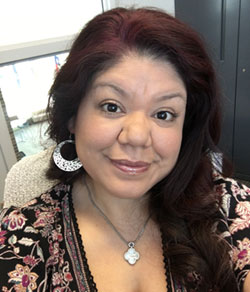Counselor Education, College Student Personnel, & Social Work

Counselor Education Graduate Programs
Master of Science in Education (M.S.Ed.)
Our Mission Statement:
"Counselors teaching counselors: knowledge, development, inspiration, and transformation."
Our Vision Statement:
The Counselor Education programs at Western Illinois University - Quad Cities will be the leader in educational quality, opportunity, and affordability among its peers.
Why choose Counselor Education at WIU?
Counselor Education may be for you if you value serving others, enjoy working with others and being part of a team, have a sense of empathy, are kind, generous, warm, and friendly, and are a good listener. We offer a unique blend of courses designed to provide the skills and knowledge necessary to become a competent counseling professional. Emphasis is on solid academic performance and experiential mastery. The Counseling Programs are accredited by the Council for Accreditation of Counseling and Related Educational Programs (CACREP). The School Counseling option is also accredited by the Illinois State Board of Education.
What our students have to say!
Jessica Ramos
Graduate Student, Clinical Mental Health Counseling

“WIU is like a second home to me. I completed my undergraduate degree in Macomb and when I chose to pursue my graduate degree, WIU-QC was the perfect choice for me. I love that the QC campus accommodates working adults and students with families. It's like a commuter campus with so many students coming from all over the QC and surrounding areas. I love being a part of the Counselor Education program. I feel so supported by all of our faculty. I have grown so much in my journey to becoming a counselor and I attribute a lot of that to the excellent education I've received at WIU. My involvement in student organizations like Counseling Association, Chi Sigma Iota and the COEHS Student Advisory Board have enhanced my education and helped me to develop leadership skills that I will need after graduation. My time spent at WIU will always be time that I look back on fondly.”
Our Program Objectives:
Through training and applied practice, WIU counselor education students will:
- Develop effective, evidence-based, ethical, and multicultural clinical skills by
- Infusing theory into practice
- Considering clients holistically
- Advocating for client well-being
- Develop strong professional counselor identity with a comprehensive integration of the student’s chosen specializations by
- Engaging in and maintaining membership and leadership in professional organizations
- Adhering to and demonstrating ethical principles and practices
- Advocating for the profession
- Become reflexive practitioners who understand their values and identities in order to
- Acknowledge their role in community-based social justice.
- Evaluate and address the unique needs of marginalized populations.
- Collaborate with community organizations through practical experiences.
- Acquire skills to work with intersectional identities through clinical placements.
School Counseling Program
In order to develop as effective school counselors, students will:
- Demonstrate an understanding of school counselor identity and roles as leader, advocate, consultant, collaborator, and systemic change agent, especially in supporting under-resourced and marginalized populations
- Be prepared to meet and implement all academic and clinical requirements to be eligible for professional licensure as a school counselor
- Learn to create and implement a comprehensive school counseling program that highlights the intersection of students’ academic, post-secondary, and personal/social considerations through an MTSS framework and data-driven practices
- Recognize and adapt core counseling skills and techniques to apply in the school setting.
Clinical Mental Health Counseling Program
In order to develop as effective clinical mental health counselors, students will:
- Be prepared to meet and implement all academic and clinical requirements to be eligible for professional licensure as a mental health counselor
- Demonstrate strong clinical skills in case conceptualization, diagnosis, documentation, and treatment planning related to a variety of clinical settings
- Develop an understanding of programmatic design, evaluation, and implementation in clinical mental health settings
- Demonstrate an understanding of clinical mental health counselor identity and roles in the delivery of services within multiple settings including advocacy and leadership responsibilities
Methods of Instruction
The Department of Counselor Education offers both didactic and clinical curricular experiences. Courses are offered in face-to-face, hybrid, and online modalities. Instructional methods include, but are not limited to lecture, case studies, discussion forums, role-plays, and the use of audio/visual media.
Admissions Information

Connect with us: